MercoPress. South Atlantic News Agency
Tag: Marina Silva
-
Thursday, October 9th 2014 - 08:28 UTC
Brazil's Socialist party announces support for Neves on 26 October runoff
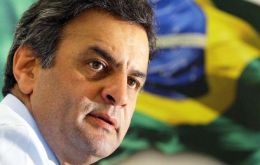
The political party that launched environmentalist Marina Silva's unsuccessful presidential bid has thrown its support behind pro-business candidate Aecio Neves for Brazil's Oct. 26 runoff vote against populist President Dilma Rousseff.
-
Wednesday, October 8th 2014 - 08:38 UTC
Brazilian pollsters missed percentages but 'confirmed tendencies'
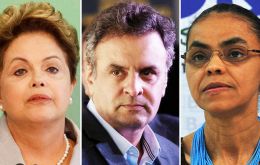
Although pollsters in Brazil got it right with President Dilma Rousseff victory and the growth tendency of runner up Aecio Neves in the last days leading to Sunday's presidential election, they failed dismally in percentage estimates.
-
Tuesday, October 7th 2014 - 05:56 UTC
Brazilian markets clearly support challenger Neves: Bovespa up 4.7%
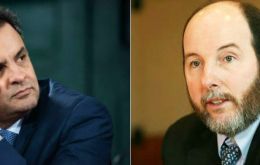
The Sao Paulo stock exchange soared 4.7% on Monday with the Bovespa index reaching 57.115 points following Sunday's presidential election when no candidate managed 50% of ballots, opening the way for a runoff between pro-business Aecio Neves and president Dilma Rousseff.
-
Saturday, October 4th 2014 - 10:38 UTC
Investors on edge waiting for the results of Sunday's voting in Brazil

Latin American currencies weakened on Friday after strong U.S. jobs data was seen as increasing the likelihood of higher interest rates in the world's largest economy, while Brazil markets fluttered in the last trading session before Oct. 5 elections.
-
Friday, October 3rd 2014 - 07:53 UTC
Latest poll shows Dilma winning the run off with seven point margin

Brazilian President Dilma Rousseff has extended her lead over environmentalist Marina Silva ahead of Sunday's Oct. 5 presidential election and would win a likely second-round runoff, a new poll showed on Thursday.
-
Thursday, October 2nd 2014 - 07:39 UTC
Dilma and Marina fighting for the religious vote, one fifth of the Brazilian electorate
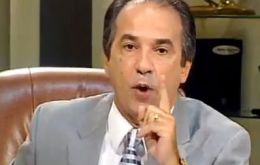
Brazil's rapid religious transformation is having an impact on the country's tight presidential race, where abortion and gay marriage have emerged as hot issues and Pentecostal televangelists are political power brokers.
-
Tuesday, September 30th 2014 - 04:40 UTC
Brazils' Bovespa and Real plunge as Dilma climbs in polls with less than a week to election

Brazilian financial markets took a beating on Monday after polls showed President Dilma Rousseff pulling past challenger Marina Silva ahead of Sunday's election. The Brazilian currency closed at its weakest level since December 2008 while the benchmark Bovespa stock index notched its biggest one-day loss in over three years.
-
Monday, September 29th 2014 - 09:16 UTC
Rousseff pledges media regulation (but not content) if re-elected this week

Brazilian president Dilma Rousseff, seeking re-election next week, says she will pursue media regulation if she returns for a second term, seeking to boost pluralism without influencing editorial content, according to media reports.
-
Saturday, September 27th 2014 - 06:34 UTC
Marina Silva pledges to de-politicize regulatory agencies and state corporations
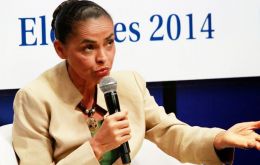
Brazilian presidential candidate Marina Silva vowed to de-politicize regulatory agencies that she says do more to win favor with government allies than ensure fair and efficient markets in Latin America's biggest economy.
-
Saturday, September 27th 2014 - 06:17 UTC
Lula da Silva the decisive campaign factor in Brazil's presidential election
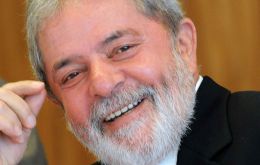
Dilma Rousseff has stopped her erosion in opinion polls as she seeks a second term as Brazil’s president, even reversing the trend with only days left before the election, greatly thanks to her predecessor and mentor Lula da Silva.
